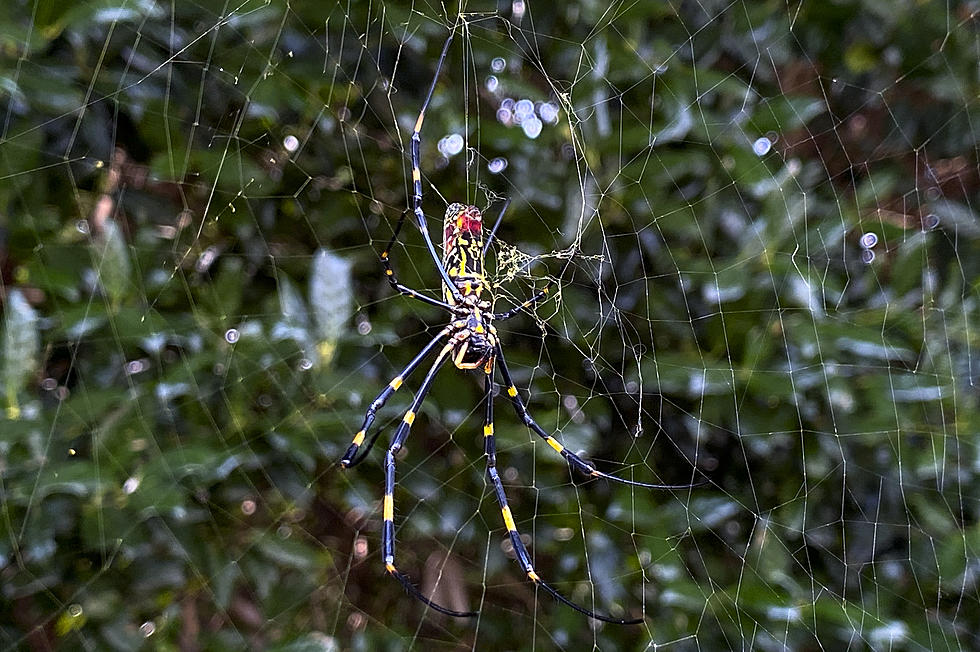
Is this large spider actually headed to New Jersey?
The state of Georgia was overrun last summer by bright, large spiders that can use their silk to "balloon" through the sky from one spot to the next.
But you're being warned not to freak out about whether or not New Jersey will become one of the newest homes for the Joro spider, even though new research out of the University of Georgia suggests the Asia-native species will likely spread along the East Coast.
"I would really say not to worry much about them," Jaden DeMario, a student at Rutgers and an assistant researcher in the university's Department of Entomology, told New Jersey 101.5. "It's been nearly a decade and they haven't really dispersed too much."
It's believed that the Joro spiders first arrived from overseas on shipping containers. The concern today is that these spiders, which covered power lines and mailboxes in Georgia last year, can hitch a ride on a car or in luggage to a new locale.
According to researchers, the "bright yellow, blue-black and red spiders" first arrived stateside in 2013, and since spread across the Peach State and the Southeast.
Joros, though, can likely exist beyond the borders of that region, researchers say. In their study, which has been published in Physiological Entomology, it was found that the Joro spider can survive "a brief freeze" that kills off many of its "cousins." It was also found to have about double the metabolism of its relative, and a 77% higher heart rate.
"It looks like the Joros could probably survive throughout most of the Eastern Seaboard here, which is pretty sobering," said Andy Davis, an author of the study.
DeMario noted the testing didn't take into account New Jersey's harsh, consistently cold winters. It's his opinion that the Joro spider would not fare well during a Garden State winter. There is little research on the Joro spider, as it's not considered to be "medically significant" — that is, it's not harmful to humans.
They're harmless
Even if the Joro spider were to eventually settle in the Garden State, rest assured that it isn't a threat to you or your pets, unless you're allergic to things like spider bites and bee stings.
"Orb-weaving spiders like the Joro spider have a couple defense mechanisms that make it so they don't really need that potent of a venom," DeMario said. "Beyond that, their fangs are very, very small, and they rarely, if ever, break the skin."
Joros are a relatively large spider — the females can grow to about three inches, and the males are much smaller. Like many spiders, Joros are generalists, meaning they'll eat any prey item that's caught in their orb-shaped webs.
According to researchers, the presence of Joros is more of an nuisance than anything else.
"There's really no reason to go around actively squishing them," said Benjamin Frick, co-author of the University of Georgia study.
Dino Flammia is a reporter for New Jersey 101.5. You can reach him at dino.flammia@townsquaremedia.com
Click here to contact an editor about feedback or a correction for this story.



